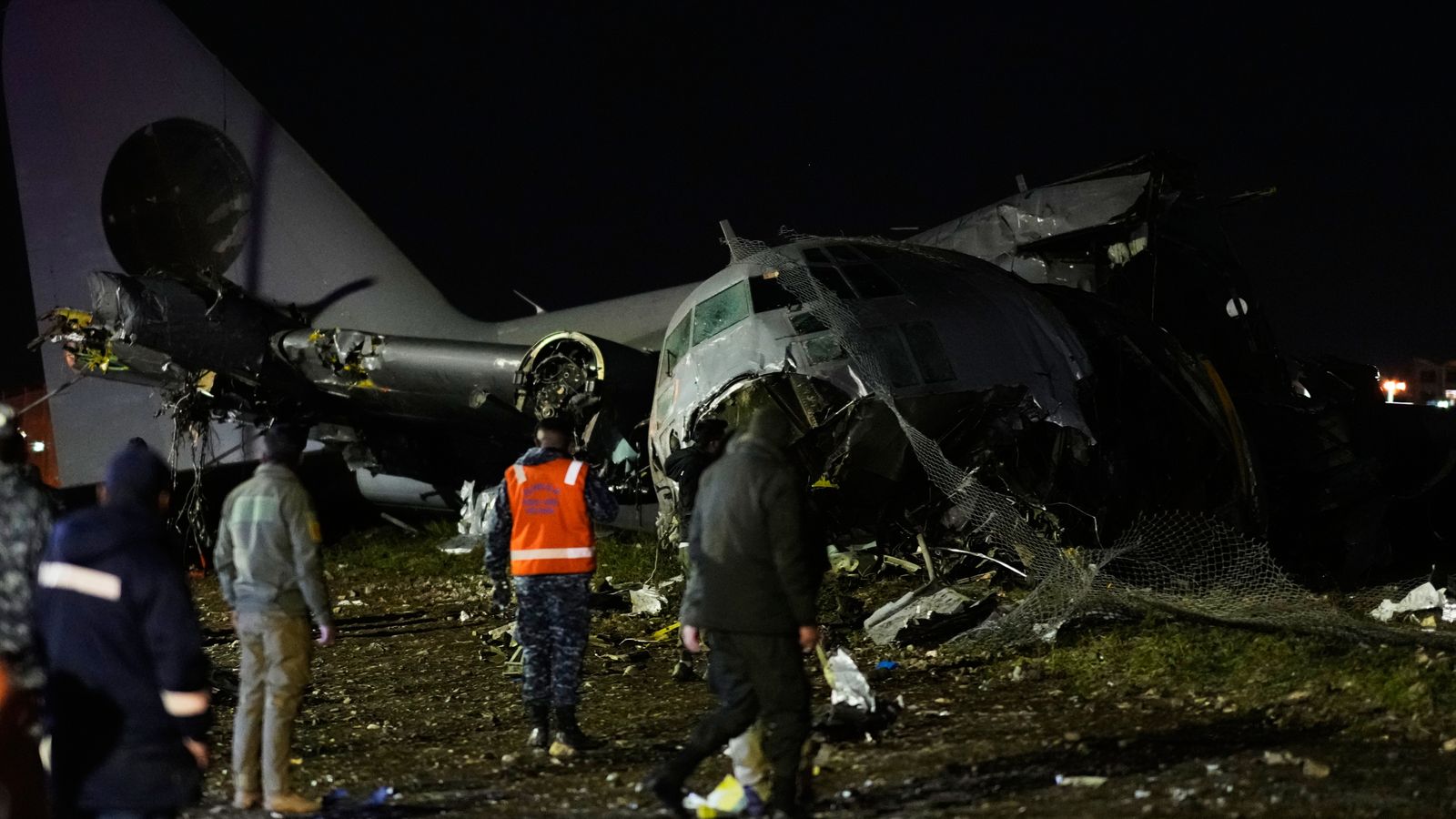Israel has sent more troops into Lebanon after a night of escalation brought the Middle East a step closer to war.
Overnight, in a move anticipated by officials, nearly 200 missiles were launched from Iran into Israel.
The attack, coming in retaliation for Israel’s campaign of strikes against Hezbollah including the killing of its leader, marks a significant escalation in the region.
Israel-Lebanon latest: Follow live updates
Most of the missiles were intercepted, Israel said, with US help, but Prime Minister Benjamin Netanyahu vowed to respond, labelling the attack a “major mistake”.
The two countries have since traded threats as allies and onlookers, including the UK, called for a step back amid fears of regional war breaking out.
Then on Wednesday, the Israeli military said that infantry and armoured units were joining ground operations in southern Lebanon.
It claimed actions there would remain limited and localised but concerns of a ground invasion remain.
Meanwhile, across Gaza, Israeli attacks claimed at least 60 lives, medics said according to Reuters, adding that Israeli tanks had advanced in the southern areas of Khan Younis.
More Israeli troops in southern Lebanon
Israel said on Tuesday that commando and paratrooper units had crossed their northern border into southern Lebanon.
It subsequently added that special forces units had been carrying out cross-border raids against Hezbollah targets for months.
Read more:
What is Hezbollah?
Sky team witness Iran’s missile barrage
Analysis: Israel is unlikely to choose a token response
Six killed in Tel Aviv shooting
What is Iran’s ‘axis of resistance’?
But, the recent addition of infantry and armoured troops from the 36th Division, including the Golani Brigade, the 188th Armoured Brigade and the 6th Infantry Brigade, suggests that the operation has moved beyond limited commando raids.
The Israel Defense Forces (IDF) claimed its ground operation is largely aimed at destroying Hezbollah tunnels and infrastructure on the border, with no plans for a wider operation.
The move has beefed up its presence in south Lebanon as Hezbollah said it had targeted areas north of Israel’s Haifa with a missile salvo.
It comes parallel to Israeli airstrikes and artillery fire pounding parts of Lebanon overnight, with fire and smoke visible along the Beirut skyline in the early hours of the morning.
Over the past two weeks, Israeli strikes have killed over 1,000 people in Lebanon, with almost a quarter of them women and children, according to the country’s health ministry, as hundreds of thousands have fled their homes.
Most recently, the IDF warned people to evacuate from another 24 villages in southern Lebanon, in a UN-declared buffer zone.
At least 60 killed in Gaza Strip overnight
Israeli military strikes overnight killed at least 60 Palestinians, medics said, adding that Israeli tanks briefly advanced in the south of the enclave.
Israeli tanks carried out a raid in areas in eastern and central Khan Younis, before partially retreating, killing at least 40 people and wounding dozens, according to the official Voice of Palestine radio and Hamas media.
The European Hospital in Khan Younis said it received bodies after Israeli strikes in the city with hospital records showing that seven women and 12 children as young as 22 months old were among those killed.
Dr Saleh al Hams, head of the nursing department at the hospital, said he had seen dozens of dead and wounded people in his facility from around 3am local time.
He warned the number of dead could rise.
Israel carried out a massive offensive earlier this year that left much of Gaza’s second city in ruins.
Houthis target Israeli military posts
Meanwhile, Houthis have targeted military posts deep inside Israel amid the escalating tensions.
Yahya Saree, a spokesperson for the group, said on Wednesday that they had used three winged ‘Quds 5’ rockets.
The group added that continuous support for Israel from the US and UK would put their own interests “under fire”.
“We will not hesitate in broadening our military operations against the Israeli enemy and who is behind it until the aggression against Gaza and Lebanon ends,” Mr Saree added.























